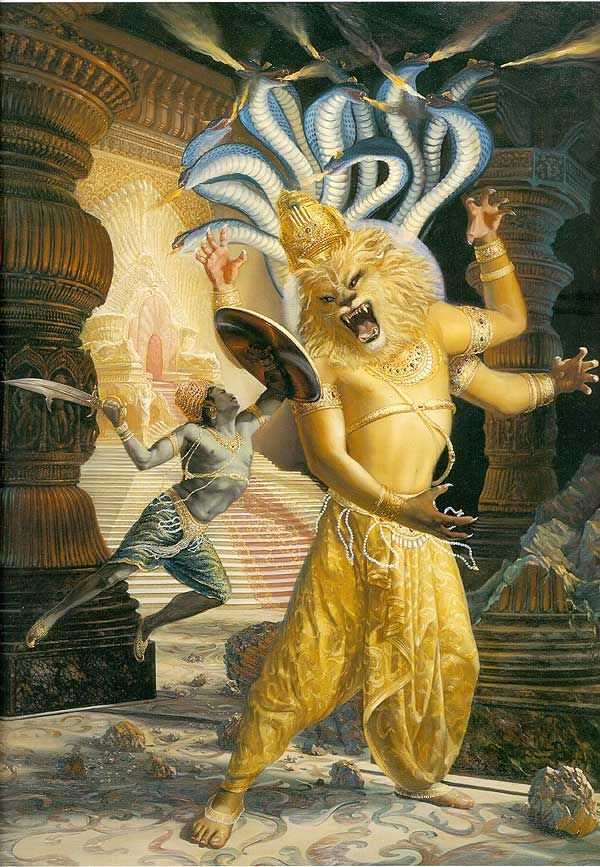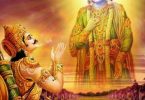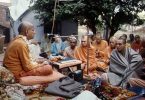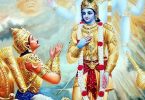Reference: Laghu Bhagavatamrita 1.5.41-67
Question:
Text 42
Maitreya’s question in the fourth Canto of Viñëu Puräëa:
“As Hiraëyakaçipu and Rävaëa (this demon) enjoyed sensual pleasures unavailable for even the great demigods, and then was personally killed by Lord Viñëu Himself. Why did (this demon) not attain säyujya-mukti then? Only as Çiçupäla did he attain säyujya-mukti, the liberation of merging into eternal Lord Hari?”
Answer:
Text 43
Çré Paräçara’s answer:
“The Supreme Personality of Godhead, who maintains, creates, and destroys the entire cosmic manifestation, manifested the unprecedented form of Lord Nåsiàha in order to kill Hiraëyakaçipu, the king of the demons. The thought that Lord Nåsiàha was actually the Supreme Lord Viñëu was not manifest in Hiraëyakaçipu’s mind. Because Hiraëyakaçipu was overwhelmed by the mode of passion, at the time of his death he was not able to meditate on the transcendental Personality who was killing him. For these reasons Hiraëyakaçipu did not attain liberation, but instead took birth as the demon Rävaëa, whose sense gratification was greater than all the pleasures in the three worlds.
Texts 44 and 45
“For these reasons Hiraëyakaçipu was not able to fix his mind in meditation on the supremely opulent and independent Personality of Godhead, who has neither beginning nor end.
“When Hiraëyakaçipu was born again as the demon Rävaëa, he became a slave to lust. His mind was completely attached to Sétä-devé, and he was therefore not able to fix his mind in meditation on the Supreme Personality of Godhead in His form as Rämacandra, the son of Daçaratha. As Rävaëa was being killed by Rämacandra, the demon thought Räma to be an ordinary human being, and for this reason Rävaëa did not attain liberation because of being killed by the Lord, but in his next birth as Çiçupäla, merely attained seemingly imperishable opulence and power, which was celebrated throughout the entire earth.
Text 46
“In this birth as Çiçupäla he was able to completely hate the Supreme Lord Kåñëa. He constantly criticized Lord Kåñëa with words, and in this way constantly called out the Lord’s holy names. With great animosity he constantly meditated on Kåñëa’s form, decorated with splendid yellow garments, golden bracelets, and a glittering crown adorned with a peacock feather. He meditated on Kåñëa’s eyes handsome as blossoming lotus petals, and Kåñëa’s four broad arms, holding the conch, cakra, club, and lotus. While walking, eating, bathing, sitting, sleeping, and performing all other activities, Çiçupäla remembered Kåñëa with hatred. His mind never deviated from Kåñëa for even a moment.
Text 47
“Determined to die at Kåñëa’s hand, Çiçupäla repeatedly insulted the Lord, and when Lord Kåñëa finally dispatched the Sudarçana cakra to kill him, Çiçupäla could understand that the glittering effulgence of the cakra was actually the imperishable Supreme Brahman.”
Texts 48 and 49
“In this way, when Çiçupäla was killed by the Lord’s Sudarçana cakra, all his sins were burned away, and he attained säyujya-mukti, entering the Lord’s own transcendental form.”
“O Maitreya, I have thus explained the entire situation to you. He is certainly the Supreme Personality of Godhead. If (or when) He is spoken of and remembered in a spirit of hatred, He gives a result difficult for the demigods, demons and all others to attain, then what kind of result does He give to they who love Him and serve Him with devotion?”
Texts 50 and 51
In this passage, Paräçara did not mention the Lord’s two associates that took birth three times in the world. These two associates are not thought to take birth in every kalpa for then they would fall down in every kalpa. That is not an acceptable idea.
Texts 52-55
Paräçara Muni’s prose answer to Maitreya is now summarized in verse:
Hiraëyakaçipu could not understand that the wonderful form of Lord Nåsiàha displayed by Lord Hari was actually Lord Viñëu. Hiraëyakaçipu was pious. He was sure that Lord Nåsiàha was very extraordinary, but because He was overcome with passion he could not fix his mind on Him. Because he was personally killed by the Lord, Hiraëyakaçipu attained extraordinary and rarely achieved sense-gratification and opulence in his next birth as Rävaëa.
Texts 56 and 57
Because he could not recognize Lord Nåsiàha as Lord Viñëu, and because he was not filled with hatred for Him, Hiraëyakaçipu was not fixed in meditation on the Lord. If without meditating on the Lord he had hated Him, he would have gone to hell as King Veëa had gone. Because he was killed by the Lord’s own hand, he attained great good fortune. Thinking of them, (Paräçara) refers to the Lord’s transcendental virtues here by speaking the word “eva” (certainly).
Texts 58 and 59
Because he was not absorbed in meditation on the Lord and because his sins were not yet destroyed, he could not see the Lord’s pure nature. Even though the Lord was manifest before him, he could not merge into the form of His Supreme Brahman. In his birth as Rävaëa, he became a slave to lust. At the time of his death He thought Lord Räma a mere human being.
Texts 60-62
Then he took birth as Çiçupäla, and again he attained great opulence. Because in that birth he chanted all the names of the goddess of fortune’s husband, Lord Näräyaëa, he could understand that Lord Viñëu had killed him twice. For this reason, out of great hatred he always chanted the Lord’s names and criticized Him in many ways.
Texts 63 and 64
Gazing at the Lord’s form, he became convinced that this was Lord Viñëu. Always and everywhere he remembered the Lord as he always chanted His names. In this way the great flood of sins born from his hatred of the Lord became burned up. When the Lord threw His cakra at the end, its splendor destroyed his demonic nature and purified his vision. Then he saw that the splendid Supreme Brahman had a humanlike form. Then the cakra destroyed his demon’s body and he merged into the Supreme Brahman.
Text 65
Considering his explanation that (this demon) attained liberation from the pastimes of child (Kåñëa), but when he was in the form of Kälanemi or other forms did not attain liberation from the Lord’s activities in other circumstances, (Paräçara) said (Text 49), “ayaà hi bhagavän” (Kåñëa is certainly the Supreme Personality of Godhead).
Texts 66 and 67
In this way it is established that Lord Kåñëa is the Supreme Personality of Godhead. He at once attracts the hearts of both they who love Him and they who hate Him. Therefore, the glorification of Him in Text 49 is not surprising. Considering this prose explanation, (it is said) how much greater (than the destination of they who hate the Lord is the destination attained by they who) serve Him with love?







